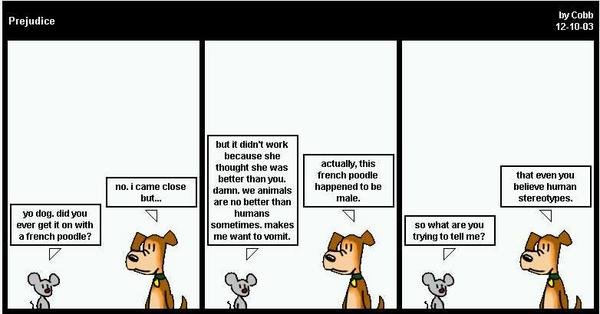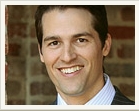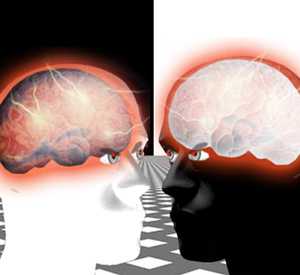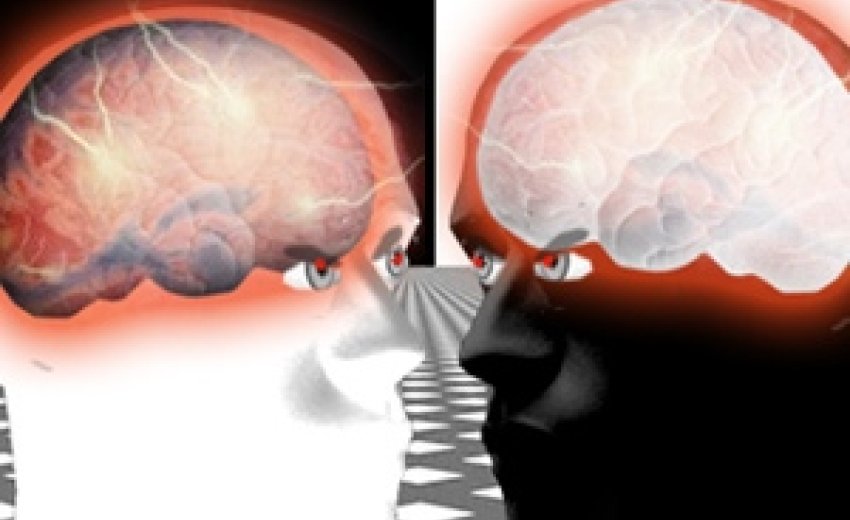The Power of Positive Prejudice

Aug 17, 2010: Several weeks ago at a fund-raising event I was introduced to a man in his late 40s. He had perfect hair, a GQ grin, and was dressed impeccably in a custom suit. The only thing that sparkled more than his white teeth was his gold Rolex. As I was shaking his hand I immediately assessed what kind of person he was, but after speaking with him, my initial characterization was destroyed and so was my spirit. I realized I had unfairly (and inaccurately) prejudged who he was.
I immediately thought about a disturbing exercise I participated in at a branding seminar a few years ago. The instructor handed out 20 index cards to each of the 20 attendees sitting around a large conference room table. On each index card, he told us to write down our immediate impression of each person — what was our gut reaction, what kind of person is this, does he look honest, would you do business with her, does he look smart? Dutifully, I fired off my assessments. The instructor then bundled all 20 cards for each person so we could read what others thought of us.
Not good. I was floored at what people wrote about me. “You think I’m what?” I remember asking. “But you don’t even know me. Why would you think that? That’s not me at all!” Yes, a few were accurate, but many were completely off target. Not only wrong, but not flattering. It turns out I wasn’t alone. Nearly everyone in the seminar had experienced something similar.
Most of us might not even be aware how often we stereotype others. What’s the first thing you think when you see a teenager with sagging jeans and tattoos? What about an older man accompanied by a much younger woman? How about a migrant worker? A man with a turban? Do you prejudge? Do you form opinions of their character, work ethic, personality, intelligence, and trustworthiness?
Prejudice is defined as a favorable or unfavorable opinion or feeling formed beforehand or without knowledge, thought, or reason. Prejudice can be the result of our experience and conditioning, but research in the field of neuroscience shows prejudice may be an innate trait — an unconditioned response that is not the result of learning.
It’s difficult not to prejudge. We are wired to quickly assess our environment and make flash assumptions and generalizations. These generalizations are essential because they allow us to predict, simplify, and categorize our world. This has undoubtedly served us well evolutionarily.
The problem, of course, is when we assign negative beliefs to people or groups of people unfairly, and when we categorize all of “them” as having similar characteristics — racism being the most extreme and disgusting form of negative prejudice.
This is all somewhat depressing, unless you think about it differently. If there’s not much we can do about immediately and automatically categorizing and creating stereotypes, who’s to say our stereotypes and prejudices have to be negative? Why can’t we create positive prejudices? It turns out, we can.
After my botched impression at the fundraiser and reflecting on my seminar experience, I decided to try a little experiment. I wasn’t going to try to avoid making generalizations or prejudgments, I was going to encourage it. I thought about the perfect stereotype. What is the one thing I want to prejudge for everybody? Each of us is unique. Each of us has fears and dreams. We all have something to offer the world. Since God created this person, there is something worthwhile within them I should respect and honor. In just the few weeks I’ve done this, it has already had a profound effect on my outlook and interactions.
Ideally you’d approach the world and those in it with a blank slate — completely void of all preconceived beliefs and expectations. If you find this to be as difficult as I have, consider creating a single positive prejudice through which you view everyone — the woman who just cut you off in traffic, the people who live over there and behave strangely, and yes, even the guy with the GQ grin…
 |
Robert Pagliarini is a man on a mission. He is obsessed with improvement and making the most of the “other 8 hours” -- the 8 hours not spent sleeping or working. He’s also obsessed with empowering others to live life to the fullest by radically changing the way they spend their other 8 hours. |
 | |
Another's view: See what Robert Burton has to say :
We're prejudiced, now what?
 Scientists now tell us bias toward others may be innate. But that doesn't mean we have to behave like Bill O'Reilly.
Scientists now tell us bias toward others may be innate. But that doesn't mean we have to behave like Bill O'Reilly.
I am stuck in rush-hour traffic. Maybe I can find a decent radio program to distract myself from the blasting horns, angry looks and cussing behind rolled-up windows. But the radio is worse than the traffic. On NPR, a Washington think tank guru is arguing that "my 30-plus years of studying the Middle East has convinced me that democracy is more appropriate for some cultures than others." A second NPR station is airing a debate on the medical rights of "illegal aliens." On Fox, Bill O'Reilly is talking about a recent dinner in Harlem, N.Y., with Al Sharpton: "I couldn't get over the fact that there was no difference between Sylvia's restaurant and any other restaurant in New York City. I mean, it was exactly the same, even though it's run by blacks."
Everywhere I turn, someone is honking at the other guy. Once upon a time, when psychology was king of the behavioral hill, I thought that prejudice could be explained by upbringing, cultural influences, socioeconomic disparities and plain old wrong thinking. Despite any hard evidence from soft sciences, I nursed the vaguely optimistic belief that education and the teaching of tolerance might make a dent in the bigotry and racism of "others." And yet sitting in stalled traffic, I cannot shake the irrational feeling that "those in the other cars" are different from "us in our car." If my mind seems intent upon making such ludicrous and meaningless distinctions, is there more here than meets the purely psychological I?
Psychologists have long talked about our tendency to form "in groups" based upon skin color, accents (the Parisian vs. the "country French") and hairstyle (try to look at green spiked hair and a crew cut without drawing inferences of fundamental differences in personality). In his 1954 book, "The Nature of Prejudice," psychologist Gordon Allport observed that many white Americans live in a "state of conflict." On one hand, they may be ideologically opposed to prejudice, but on the other, they possess underlying tendencies to think and act in racially biased ways.
Neuroscience is now providing tantalizing hints as to how these tendencies might occur. Read More...
